No products in the cart.

1. Introduction
Artificial intelligence (AI) is revolutionizing the agricultural sector, enabling farmers to optimize productivity while promoting sustainability. AI-powered agriculture leverages advanced technologies such as machine learning, IoT, and predictive analytics in farming to improve decision-making and streamline operations. From automating routine tasks to analyzing vast amounts of agricultural data, AI is transforming traditional farming into a highly efficient and technology-driven industry.
One of the biggest advantages of artificial intelligence in farming is its ability to enhance efficiency. AI-powered farm management software provides real-time insights into soil health, weather patterns, and crop conditions, enabling farmers to make precise and data-driven decisions. Additionally, agricultural automation through robotics and autonomous farming equipment reduces labor costs while improving productivity, ensuring that resources such as water, fertilizers, and pesticides are used optimally.
Beyond efficiency, AI is also driving sustainability in modern farming. By integrating smart farming technologies, farmers can adopt sustainable farming practices that minimize environmental impact. Crop monitoring with AI helps detect plant diseases early, reducing the need for excessive chemical usage, while climate-resilient crops developed with AI-driven research ensure food security in the face of changing climate conditions. As technology continues to evolve, AI will play an even greater role in shaping a resource-efficient agriculture industry that balances high yields with environmental responsibility.
2. The Role of AI in Modern Farming
Artificial intelligence is transforming the agricultural landscape by enabling smarter and more efficient farming practices. AI-powered systems improve decision-making by analyzing vast amounts of data collected from sensors, drones, and satellites. These insights help farmers predict weather patterns, monitor soil conditions, and detect plant diseases in real-time. By utilizing data-driven farming, growers can optimize irrigation schedules, apply fertilizers more precisely, and enhance overall crop health, leading to increased productivity and reduced resource waste.
One of the most significant advancements in modern agriculture is AI-driven automation in agriculture. AI-powered robots and autonomous farming equipment perform labor-intensive tasks such as planting, weeding, and harvesting with minimal human intervention. These innovations not only reduce dependency on manual labor but also ensure precision in every farming operation. Additionally, agricultural automation enhances efficiency by optimizing workflows, allowing farmers to manage larger fields with greater accuracy and speed.
Beyond automation, AI contributes to sustainability by integrating smart farming technologies that promote resource-efficient agriculture. By combining machine learning in farming with IoT in agriculture, AI helps minimize environmental impact while maximizing yields. These advancements make farming more adaptable to climate challenges and ensure long-term food security. As AI technology continues to evolve, its role in modern farming will only expand, leading to a more efficient, sustainable, and resilient agricultural industry.
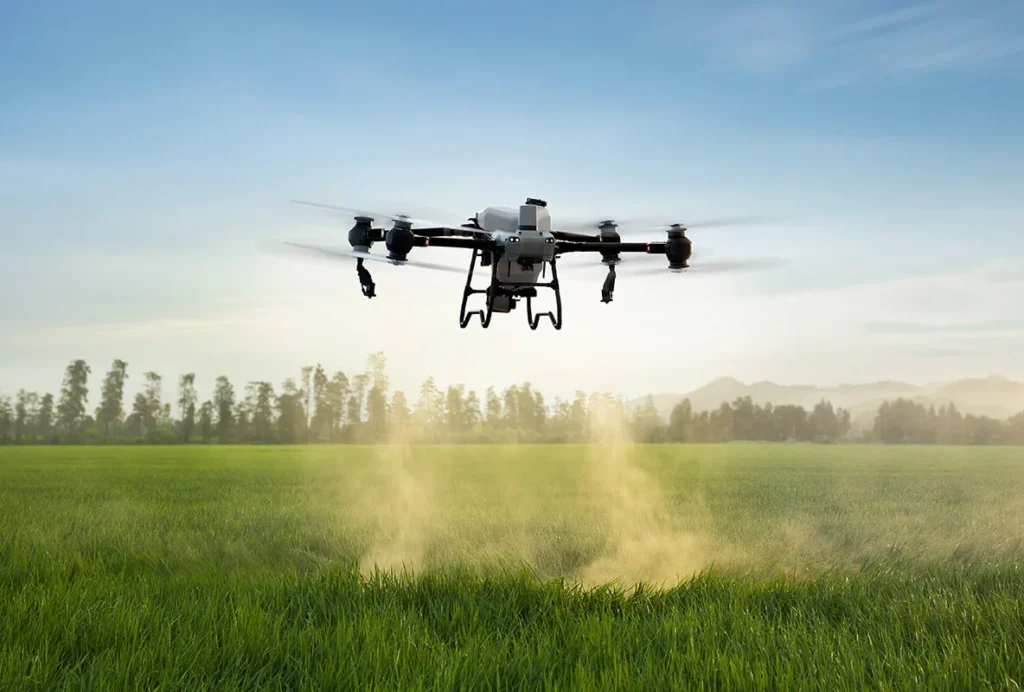
3. Key AI Technologies Transforming Agriculture
Artificial intelligence is revolutionizing farming by introducing advanced technologies that enhance efficiency and sustainability. Among the most impactful innovations are machine learning in farming and predictive analytics in farming, which enable farmers to make data-driven decisions. These technologies analyze historical and real-time agricultural data to predict weather patterns, optimize planting schedules, and detect early signs of disease or pest infestations. By leveraging AI-driven crop yield optimization, farmers can improve productivity while minimizing resource wastage, leading to higher profitability and sustainability.
Another game-changing advancement in agriculture is the integration of IoT in agriculture and smart sensors for data collection. These interconnected systems continuously monitor soil moisture, nutrient levels, and climate conditions, providing farmers with real-time insights. AI processes this data to recommend precise irrigation and fertilization strategies, ensuring resource-efficient agriculture. By reducing excess water and chemical usage, these technologies not only improve farm output but also promote environmentally friendly practices.
The synergy between digital agriculture solutions and AI-driven automation is reshaping traditional farming. AI-powered agricultural automation systems, such as autonomous tractors and robotic harvesters, further enhance productivity by executing tasks with precision and minimal human intervention. As these technologies continue to evolve, AI applications in agriculture will play a crucial role in addressing food security challenges, making farming more adaptive, intelligent, and sustainable for future generations.
4. Boosting Efficiency with AI in Farming
AI is revolutionizing modern farming by enhancing efficiency through precision agriculture and resource optimization. AI-powered farm management software analyzes real-time data from sensors, satellites, and drones to help farmers make informed decisions. This technology enables targeted application of fertilizers, pesticides, and water, reducing waste while maximizing crop yields. By utilizing AI-driven crop yield optimization, farmers can improve productivity while minimizing environmental impact. Additionally, machine learning in farming helps identify patterns in soil health, weather conditions, and crop growth, ensuring better planning and resource allocation.
One of the most significant advancements in AI-driven farming is AI-driven irrigation and water management. AI-powered systems use IoT in agriculture to monitor soil moisture levels and predict water requirements accurately. This allows for resource-efficient agriculture, where water is distributed only where and when it is needed, reducing waste and preventing over-irrigation. Smart irrigation systems, combined with predictive analytics in farming, ensure that crops receive the optimal amount of water, leading to healthier plants and higher yields.
By integrating agricultural automation and smart farming technologies, AI is transforming traditional farming methods into efficient, data-driven systems. These innovations not only help farmers reduce operational costs but also contribute to sustainable farming practices by conserving resources and promoting environmentally friendly approaches. As AI continues to evolve, its role in enhancing farming efficiency will only expand, making agriculture more resilient, productive, and sustainable.

5. AI for Sustainable Agriculture Practices
Artificial intelligence is playing a crucial role in promoting sustainable farming practices by reducing waste, conserving resources, and improving environmental health. One of the most significant contributions of AI is in reducing waste and chemical use. Through precision agriculture, AI-powered systems analyze real-time data to optimize the application of fertilizers, pesticides, and herbicides, ensuring they are used only where necessary. AI-driven crop yield optimization helps minimize overuse of chemicals, reducing soil and water contamination while maintaining high agricultural productivity.
Another key benefit of AI is enhancing soil conservation and biodiversity. AI-powered farm management software and machine learning in farming allow farmers to monitor soil health and implement practices that prevent erosion and degradation. IoT in agriculture provides real-time soil moisture and nutrient data, enabling targeted interventions that preserve soil fertility. Additionally, AI aids in crop rotation planning and companion planting, fostering biodiversity and reducing dependence on monoculture farming, which can deplete essential nutrients.
AI also plays a pivotal role in climate-smart farming, helping agriculture adapt to changing environmental conditions. Predictive analytics in farming allows farmers to anticipate extreme weather events, such as droughts or floods, and take preventive measures. AI-powered agricultural automation ensures efficient resource management, reducing greenhouse gas emissions from traditional farming methods. By integrating AI with digital agriculture solutions, farmers can develop more climate-resilient crops, ensuring long-term food security while maintaining ecological balance.
6. AI in Livestock and Dairy Farming
Artificial intelligence is transforming livestock and dairy farming by improving animal health, optimizing feeding, and enhancing productivity. One of the most impactful advancements is AI-powered health monitoring in animals, which helps farmers detect diseases and abnormalities early. AI-driven smart farming technologies use sensors, cameras, and wearable devices to track livestock behavior, body temperature, and movement patterns. Predictive analytics in farming analyzes this data to identify potential health issues, allowing farmers to take preventive measures and reduce losses. By integrating data-driven farming, AI ensures better disease management and improves overall herd well-being.
Another major innovation is automated feeding and breeding systems, which enhance efficiency and sustainability in livestock management. AI-powered farm management software calculates precise nutrition requirements for each animal based on age, weight, and milk production. Automated feeding systems ensure that livestock receive the right amount of food at the right time, reducing waste and improving growth rates. Similarly, AI applications in agriculture help optimize breeding programs by analyzing genetic data to select the best candidates for reproduction, improving herd quality over time.
By integrating agricultural automation and AI-driven crop yield optimization, AI enhances both livestock and dairy farming operations. These innovations not only increase efficiency but also contribute to sustainable farming practices by reducing resource consumption and environmental impact. As AI continues to advance, its role in livestock and dairy farming will further improve animal welfare, farm profitability, and food security.
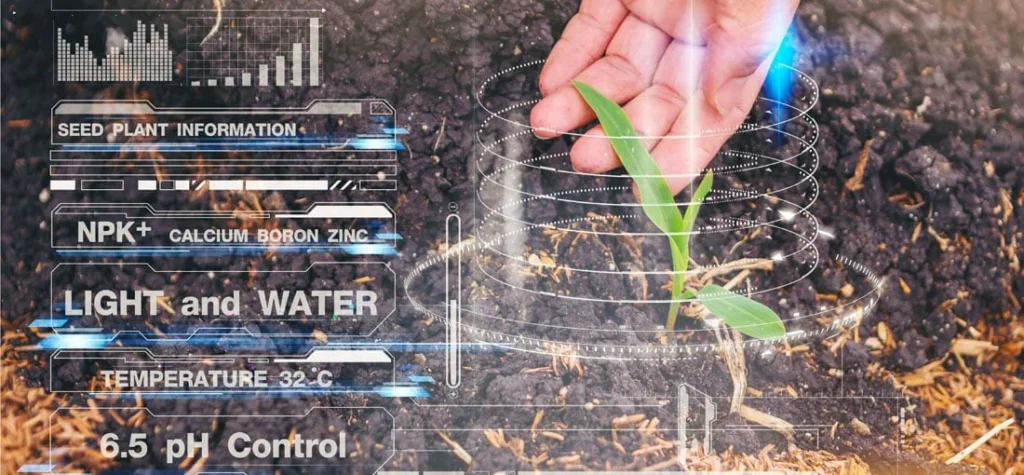
7. Case Studies: AI Success Stories in Agriculture
Artificial intelligence is already making a significant impact on agriculture, with numerous real-world success stories showcasing its potential. One notable example is the use of AI-powered agriculture by John Deere, which has developed autonomous tractors and precision agriculture tools that optimize planting and harvesting. By integrating machine learning in farming, their smart equipment analyzes soil conditions and crop health in real time, allowing farmers to make data-driven decisions. This has led to increased efficiency, reduced costs, and improved sustainability through resource-efficient agriculture.
Another success story comes from AI-driven crop yield optimization initiatives by companies like Blue River Technology. Their AI-powered smart farming technologies utilize computer vision and robotics to detect and eliminate weeds without excessive herbicide use. This reduces waste and chemical use, making farming more sustainable while lowering operational expenses. Additionally, startups like Prospera and Taranis are leveraging predictive analytics in farming to monitor crops using AI-driven drones and satellite imagery, helping farmers detect diseases and nutrient deficiencies before they affect yields.
Companies leading AI applications in agriculture are continuously innovating to address global food security and environmental concerns. IoT in agriculture, combined with AI, is helping Agri-tech firms develop climate-resilient crops, automate irrigation, and enhance farm management. These case studies demonstrate how AI is revolutionizing modern farming, making agriculture more efficient, sustainable, and profitable. As AI continues to evolve, its impact on farming will only grow, setting new benchmarks for digital agriculture solutions worldwide.
8. The Future of AI in Agriculture
Artificial intelligence is set to revolutionize farming even further, with emerging technologies paving the way for a more efficient, sustainable, and productive agricultural sector. Emerging AI trends in precision farming include advancements in machine learning in farming, which will enable more accurate crop disease prediction, soil analysis, and automated decision-making. AI-powered agricultural automation, such as autonomous tractors, robotic harvesters, and drone-based monitoring, is expected to become more widespread, reducing the need for manual labor while enhancing productivity. Additionally, predictive analytics in farming will improve real-time data collection, helping farmers optimize yields with greater precision.
Looking ahead, AI will shape the future of food production by making farming more sustainable and resource-efficient. AI-driven crop yield optimization will allow farmers to maximize output while minimizing waste, addressing global food security challenges. Smart farm management software will integrate with IoT in agriculture, providing real-time insights into soil health, climate conditions, and pest infestations, enabling proactive farming strategies. AI’s role in climate-resilient crops will also expand, helping farmers adapt to unpredictable weather patterns caused by climate change.
As AI technology advances, its integration with digital agriculture solutions and agri-tech innovations will continue to transform farming on a global scale. With AI-powered smart farming technologies reducing environmental impact and improving efficiency, the future of agriculture looks promising. Farmers, researchers, and policymakers must collaborate to ensure responsible AI adoption, leveraging its full potential to create a resilient and sustainable food system.
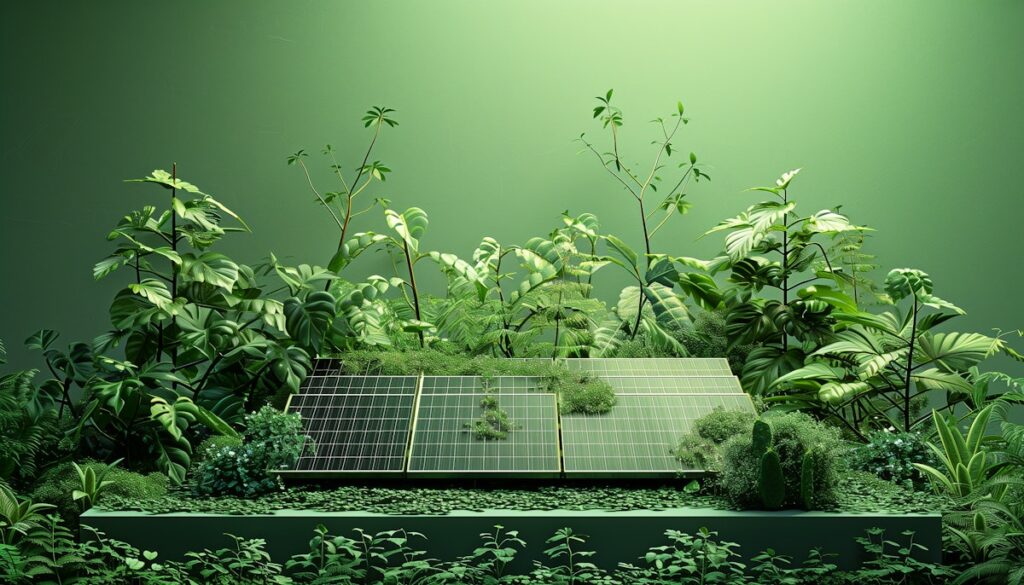
9. Conclusion
Artificial intelligence is transforming agriculture by enhancing efficiency, sustainability, and productivity. Through AI-powered agriculture, farmers can make smarter decisions, optimize resources, and improve yields. Technologies like precision agriculture, machine learning in farming, and IoT in agriculture are driving advancements that reduce waste, conserve water, and enhance soil health. AI-driven automation is also revolutionizing livestock management, irrigation, and crop monitoring, making modern farming more data-driven and resource-efficient.
As AI continues to evolve, its role in sustainable farming practices will only grow, helping farmers adapt to climate change, improve food security, and reduce the environmental impact of agriculture. AI-driven crop yield optimization and digital agriculture solutions will further enable precision farming, ensuring that every aspect of farming is optimized for maximum efficiency. The integration of agri-tech innovations and AI applications in agriculture will continue to push the boundaries of what is possible, shaping the future of food production.
In conclusion, AI is not just an emerging trend—it is the future of agriculture. By embracing AI-driven automation, farmers can achieve higher efficiency while maintaining sustainable practices. As technology advances, AI will play an even greater role in ensuring a productive, eco-friendly, and resilient agricultural industry.
FAQs :
Q1. How is AI used in agriculture to improve efficiency?
AI in agriculture enhances efficiency through precision agriculture, machine learning in farming, and AI-driven crop yield optimization. These technologies help farmers analyze real-time data, automate tasks, and make informed decisions to maximize productivity while reducing waste.
Q2. What are the benefits of AI-powered agriculture?
AI-powered agriculture improves resource-efficient agriculture by optimizing irrigation, reducing pesticide use, and enhancing soil health. It also enables agricultural automation, streamlining farm operations through autonomous machinery and predictive analytics.
Q3. How does AI contribute to sustainable farming practices?
AI helps promote sustainable farming practices by reducing chemical use, optimizing water consumption, and improving climate-resilient crops. AI-powered digital agriculture solutions enable smart monitoring of environmental conditions, leading to more eco-friendly farming methods.
Q4. What are the key AI technologies transforming modern farming?
Key technologies include machine learning in farming, IoT in agriculture, predictive analytics in farming, and AI applications in agriculture. These innovations allow for data-driven decision-making, automated farm management, and improved crop monitoring.
Q5. What is the future of AI in agriculture?
The future of AI in agriculture includes advancements in autonomous farming equipment, AI-driven smart sensors, and enhanced farm management software. These technologies will further improve food production, sustainability, and global food security.
Related Articles
Livestock Farming
AI in Aquaculture: How Smart Tech is Transforming Fish Farming
1. Introduction: The world’s appetite for seafood is growing fast, yet traditional...
Livestock Farming
The Future of Farming: Why AI-Powered Tractors Are Gaining Popularity
1. Introduction: Across the world, farmers are grappling with rising costs, shrinking...
Livestock Farming
Using AI to Track Livestock Health and Prevent Disease Outbreaks
1. Introduction: In recent years, livestock farmers around the world have faced...
Livestock Farming
How Machine Learning Is Changing Fertilizer Application on Farms
1. Introduction: For decades, farmers have applied fertilizer using general formulas, blanket...
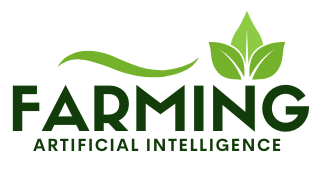
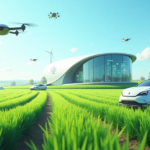

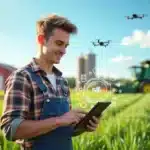




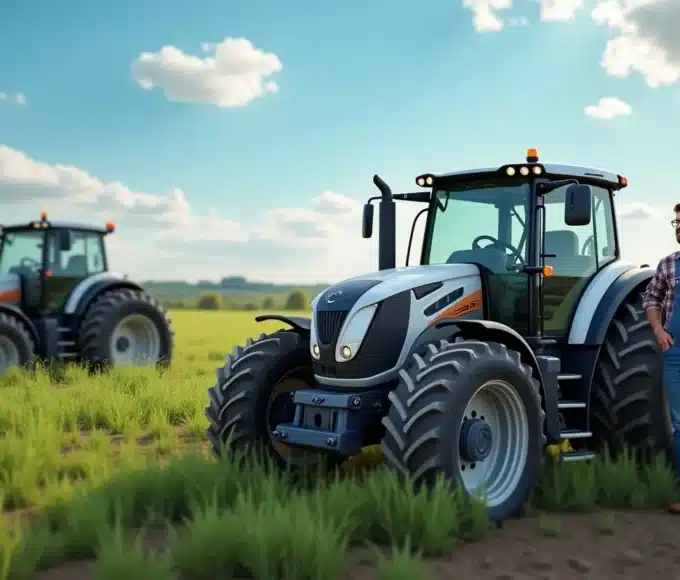
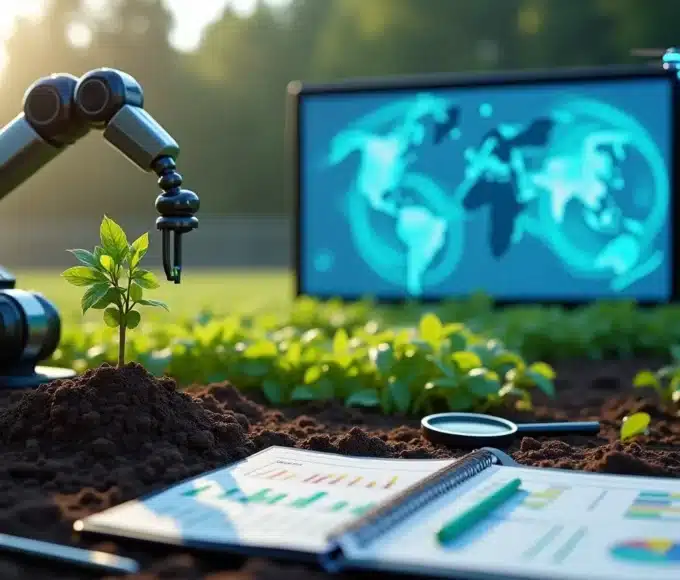
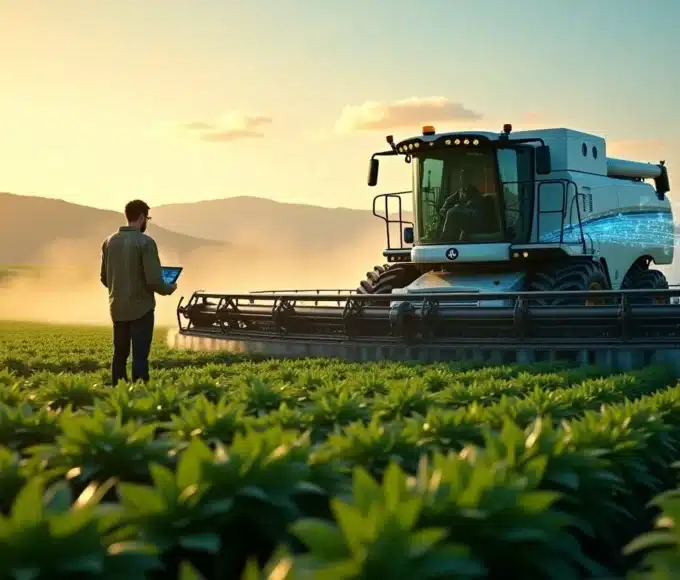
1 Comment